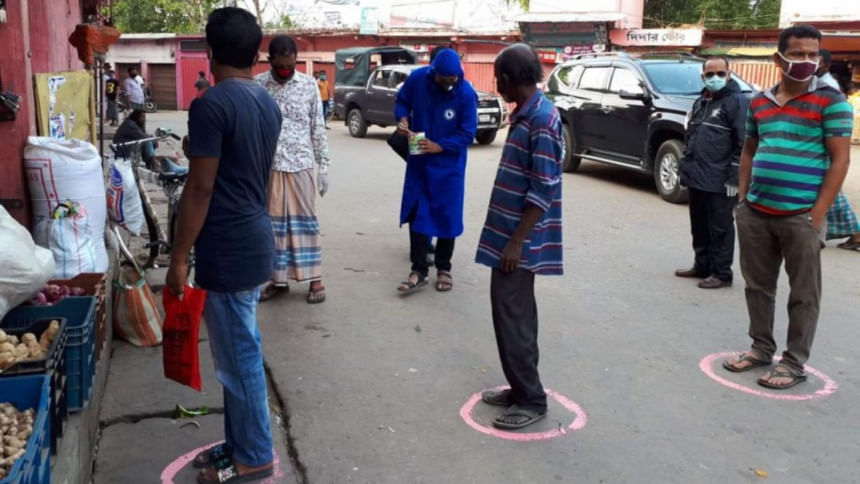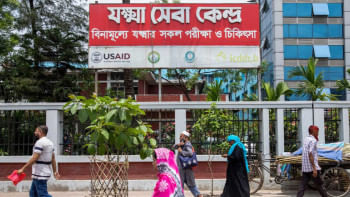Ice Age: Corona Consequence

How will the world look like once this not-so-coveted Covid-19 crisis is over? Is this pandemic a virus-driven Ice Age that will change the world the way we know it? Can we ever go back to being normal? Or are we going to have "the new normal"?
Let's look at China where things are supposedly beginning to look normal. China was the first country to be hit by the disease tornado. The eye of the storm has shifted elsewhere, and China has begun to regain some of its composure. Large scale lay-offs is looming large as the country deals with the changes in its consumer behaviour, service sector and digital norms. Once we thaw from this frozen life, we too will be affected by these sectoral changes. Let us then pay heed to them.
Consumer behaviour has changed as more and more people now want contactless service. During the lockdown period, people have made cooking as part of their daily routine. They have realised the importance of spending more time at home with their families. In the process, people have changed their habits of eating out. It is predicted that 50 percent of the restaurants run the risks of being shut down. Of course, people will return to the eateries, but they are going to be careful and circumspect about being in a crowd. Social distancing is going to be an ingrained habit, and its impact will be felt everywhere.
The service sector has already redefined itself during this crisis. Uber in China shifted its gear to reach to the clients who were afraid of ride-sharing, but needed delivery service. The improvement and reliance on delivery service may change the nature of physical grocery stores. We have already seen how Foodpanda in Bangladesh has added "stores" and "contactless payments" to its features. The trend to bring service to your doors can be the other new normal.
The most important change has come in the digital sector. Technology has proved to be the greatest ally of man in isolation. Particularly, Information Technology has kept everyone connected during this period of quarantine. Sure enough there are going to be huge investments and innovations in IT. The weakness of having to rely on physical labour during the time of epidemic will see further expansions in automation. All the signs suggest: we are at the threshold of redefining our human identity and nature. Where do we go from here? One fear is de-globalisation. The crisis exposed the raw nerves of global supply chains. Countries have to respond to long periods of economic self-isolation. The fear of the next pandemic and nationalistic reflexes in dealing with the crisis have given birth to a type of xenophobia, which can be the topic for another time. It is a forest out there. Let me rather focus on a tree: Bangladesh.
Understandably, all our efforts so far have been on the crisis management. We want to mitigate the onslaught of the disease by flattening the curves of infection and tackle the adverse economic impact from the lockdowns by providing some financial cushions. Such attempt has divided us into two groups: the essential workers and non-essential ones. Those who are at the front-line of the crisis will surely deserve more attention in the future. At the same time, there will be attempts to make the non-essentials a bit more productive in any future crisis. Having said that, it is equally important that we do an inventory of our essential workers.
We will do ourselves a favour by asking why and how the Hippocratic Oath of some of our doctors became a hypocritical one. What made some private hospitals and pathological laboratories close themselves at this time of need? How come some hospitals fired health staff and stopped offering services? Maybe time has come to rethink our health sector. I know how hundreds of people with dual nationalities fled the country at the first sign of crisis. They wanted to be in a country with reliable medical facility. I know that there are many who sought chartered planes to get out of the country hoping to get better treatment abroad. Each year, health tourists from our countries spend millions of takas abroad. After the series of petrol bomb attacks, we saw the development of an international standard burn unit. One can only hope that the nudge from the tiny virus will yield the improvement of our health sector. The right to medical care is guaranteed in our constitution under Clause 15. So are our other basic rights: "the provision of the basic necessities of life, including food, clothing, shelter, education and medical care."
It is heartbreaking to see that our farmers and producers are not getting the right price during this crisis. Chicken are being killed or milk being thrown away. The production cost of a broiler hen weighing one kg is Tk 90, whereas the producers are forced to sell it for Tk 40. That does not stop the superstores from selling the chicken for Tk 150/kg or more. Surely, there could be an emergency distribution chain, where the government could have purchased these products as part of its food camps and distributed them among the protein deficient people who are being locked down.
In the clothing sector, the farce that the country witnessed, thanks to the whim of BGMEA, is beyond comprehension. Making thousands of people walk miles and forcing them to go back was a criminal callousness. The marathon of the workers however shows how desperate people are for their jobs. If the State fails to protect them, where will these people go? What survival methods will they adopt? And how will they affect the securities? For the security of the state, their jobs need to be secured. Will the threat of automation widen the wage gap further and push these downtrodden people to stare down the barrel? In response, the state may either beef up its security forces to oppress the mass or adopt a humanitarian approach involving both the workers who have returned from abroad and those who are working here. We need to enhance our manufacturing sector. The participation of the labour force in the manufacturing sector can only be enhanced once we start innovating products of our own. We need to think beyond the order of foreign buyers and cut-and-stitch according to the designs provided by the retail outlets. We need massive growth in R&D.
Any five-year-old can produce hand sanitizers looking at a Youtube video—yet it became a national news when our premium educational institute did so. It shows how impoverished we are as a nation—intellectually. We did not sequence the virus. We did not research for remedies. We simply kept on forwarding memes and attachments. And found comfort in making sanitizers.
The last sector, education, with which I am involved, shows signs of inefficiencies and incompetence that persist everywhere. We have failed to rise to the occasion (I do not count myself out of it). The public university system relies on aged, lecture-based approaches to teaching, entrenched institutional biases, and outmoded classrooms. At the first sign of danger, the public universities resorted to a reactive stance: complete closures. Some of the private universities tried to be pro-active in offering a low-diet online support, using digital platforms as a temporary solution to the crisis. The University Grants Commission, as whimsical as BGMEA, first supported online classes and then backed off by saying there should not be any final exams based on online classes. Funnily enough, it is UGC experts who went round campuses to parrot World Bank mantra of quality education and preached about making formative tests such as quizzes, tests and assignments as part of the summative assessment. Not only that, instead of taking a pioneering role in making sure that institutions across the board have the digital interface to be plugged in with the global reality, UGC took a populist position of playing second fiddle to media reports—managing to instigate our students who are uncomfortable with the online system.
Of course the system has its ills. The stop-gap solution to migrate to a low-bandwidth online teaching suffered greatly from the country's internet penetration. Judging from the reaction of some of our students who went outside of Dhaka, we woke up to a new realisation that has been already foreseen by World Economic Forum: "the less affluent and digitally savvy individual families are, the further their students are left behind. When classes transition online, these children lose out because of the cost of digital devices and data plans."
The Ministry of Education has decided to use BTV to develop education materials for schools. One can only hope that UGC will come forward to develop an education platform and facilitate public private partnership. It will be foolish to hold on to pre-COVID categorisation. Time is ripe for UGC to bring in tele-companies, publishers, media outlets on board to build a resilient system that can withstand any future blow.
We are frozen. We are experiencing a virus-driven ice age that has forced us to cocoon ourselves. We want to come out of our shells and fly in the sky of a brave new world.
Shamsad Mortuza is a professor of English, University of Dhaka (now on leave). Currently, he is Pro-Vice-Chancellor of ULAB. Email: [email protected]

 For all latest news, follow The Daily Star's Google News channel.
For all latest news, follow The Daily Star's Google News channel. 



Comments